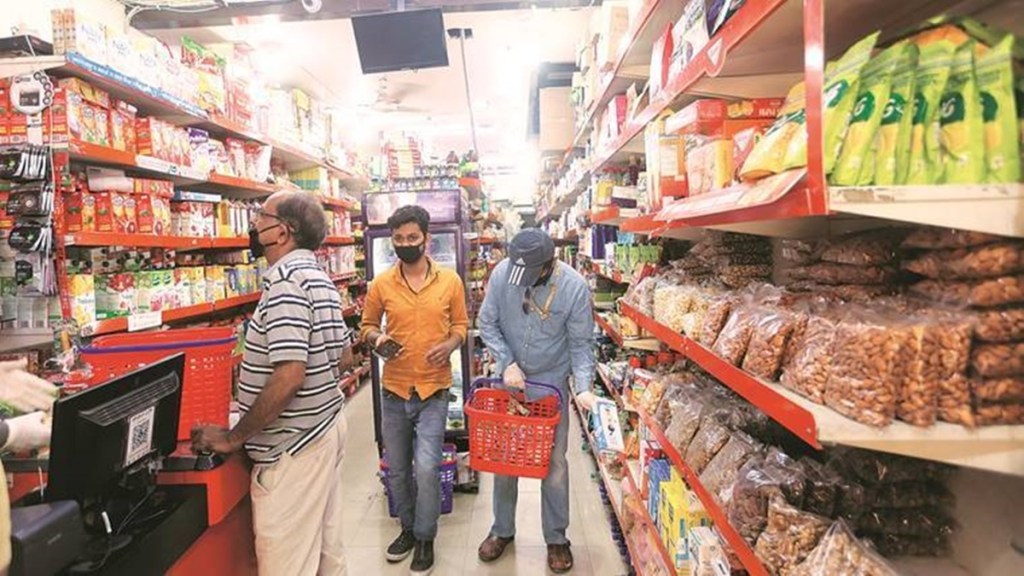Recently, venture capital-supported tech start-ups have set their sights on an enormous untapped retail market in the country that has been disorganized for a long time. This market, which is worth $600 billion and is dominated by approximately 15-20 million kirana and small mom-and-pop stores, accounts for more than 80% of the entire retail industry, according to a BofA Securities brokerage report on the B2B retail market published last year.
These figures suggest that there is a significant distribution opportunity for B2B retail start-ups, and numerous models have emerged in India over the past few years, aiming to disrupt the supply chain to kiranas and small shops. While most B2B startups, such as Price Company, DealShare, Jumbotail, ShopKirana, and others, are focused on becoming alternative suppliers or PoS software providers to kiranas and small mom-and-pop stores, Sorted, a B2B supply start-up based in Gurgaon, is opting for the kirana franchising route to shake up the market.
Founded in February 2023, by Anant Goel, Nitin Gupta, and Sahil Madan, Sorted is an omnichannel platform exclusively focused on supplying fruits and vegetables (F&V) to small kiranas and supermarkets. Powered through its proprietary technology and franchisee network of existing neighbourhood stores, Sorted enables shop owners to buy fresh produce straight from farmers while also providing an opportunity to grow their revenues. Sorted is yet another brainchild of Goel, who earlier operated the daily morning delivery service Milkbasket. His co-founders Gupta and Madan, on the other hand, have multiple years of experience in the consumer Internet space.
“We are effectively a B2BC model where the end consumer, can get the freshest F&V through the medium of their choice – call, message, online or offline – by simply walking in at the nearby Sorted store any time of the day,” said Goel during an interview with Fe.
During the beta testing state last year, Sorted was able to effectively double the revenues kirana franchisees that the platform worked with, which served as an effective proof of concept to potential investors, Goel said. Sorted has already raised $5 million in its ongoing seed funding round, the startup said in a statement last week.
“Kiranas who had joined us during the early PoC stage were able to double their revenue within five to six weeks of joining us. But the interesting fact is that we did not expect that to happen. An average household spends around Rs 5,000 a month on F&V only, but these spends are split across both offline shops and online grocery apps. However, we have proven that if a kirana shop can give consumers a good quality assortment at the best price at a single place, then consumers converge all their demand into a single medium,” added Goel
He further pointed out that the average household spends around 10-12% of their wallet on fruits and vegetables alone every month and as their disposable income increases, it further goes as a percentage share. On the other hand, an average kirana, supermarket or even an online grocery app generates around 70-80% of sales from F&V alone, according to Goel.
“There is evidently a huge mismatch when households are spending 10 to 12% of their money on F&V whereas a kirana or an online grocery app clocks in 70 to 80% of the revenue in F&V. That was a very intriguing number. If kiranas move to the Sorted platform, will be able to take care of the entire supply of F&V for them and even take away the logistics cost for transporting F&V items from the mandi to th shop. This way we can provide more revenue to shop owners, and even save on wastage,” Goel said.
Elaborating further on the platform’s targets for CY2023, Goel said that Sorted will first expand and acquire franchisees in Gurgaon and in the NCR region. “Once we reach a market-leading position in the Gurgaon area which is a Rs 200 crore market opportunity, we will then expand to cities like Bengaluru, Hyderabad, and Pune later,” he added.
Goel also said that Sorted is targeting approximately $12 to $14 million in annual recurring revenue (ARR) for the ongoing financial year which translates to around Rs 8-10 Cr in sales a month. He added that by converting existing kiranas into franchisee stores, Sorted is able to save a chunk of marketing costs in acquisition customers since kirana shops themselves have a loyal base of customers. Sorted, however, will not look to open its own stores due to high real estate and customer acquisition costs.
Investors in B2B retail and software space that Fe spoke with, however, pointed out that kirana shop owners are not readily tech savvy when it comes to running a business. “It will be hard to convince mom-and-pop shop operators to readily migrate their entire operations to a tech-enabled franchise store unless they realise some increment in their revenues or new customer generation and very rarely have startups have been successful in the B2B retail space,” said an early-stage investor with investments in the B2B space asking to remain anonymous.
The investor further pointed out that although B2B kirana supply may still be a valid business model to operate and scale, the model is still not proven to be profitable. “B2B solutions for kiranas have still have not proven to be a venture-fundable business that can meet expectations of venture returns,” the investor added.
